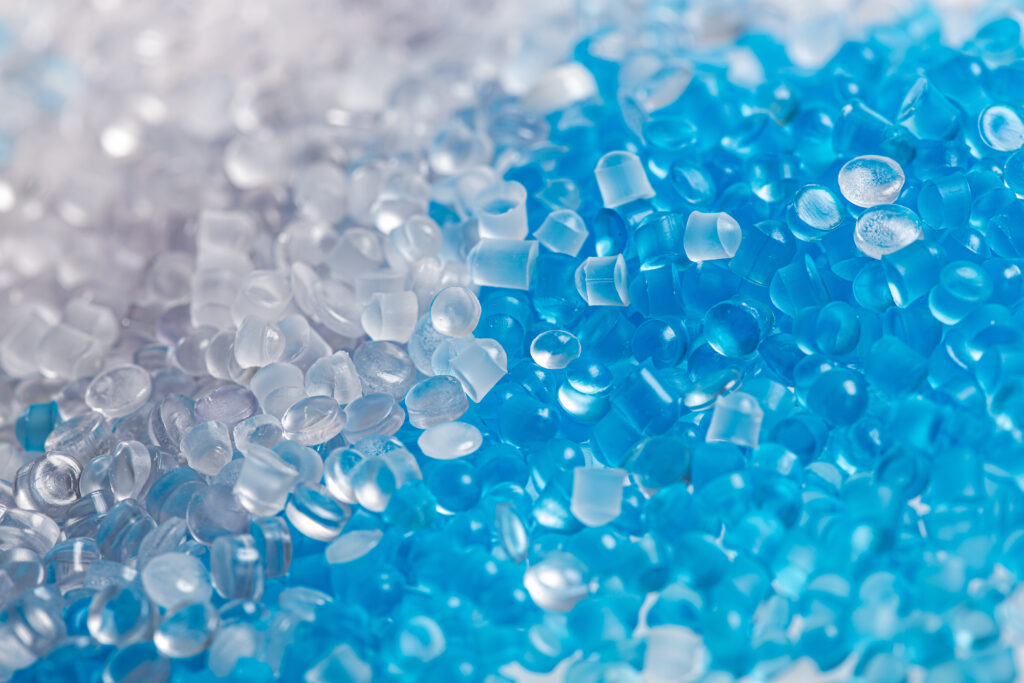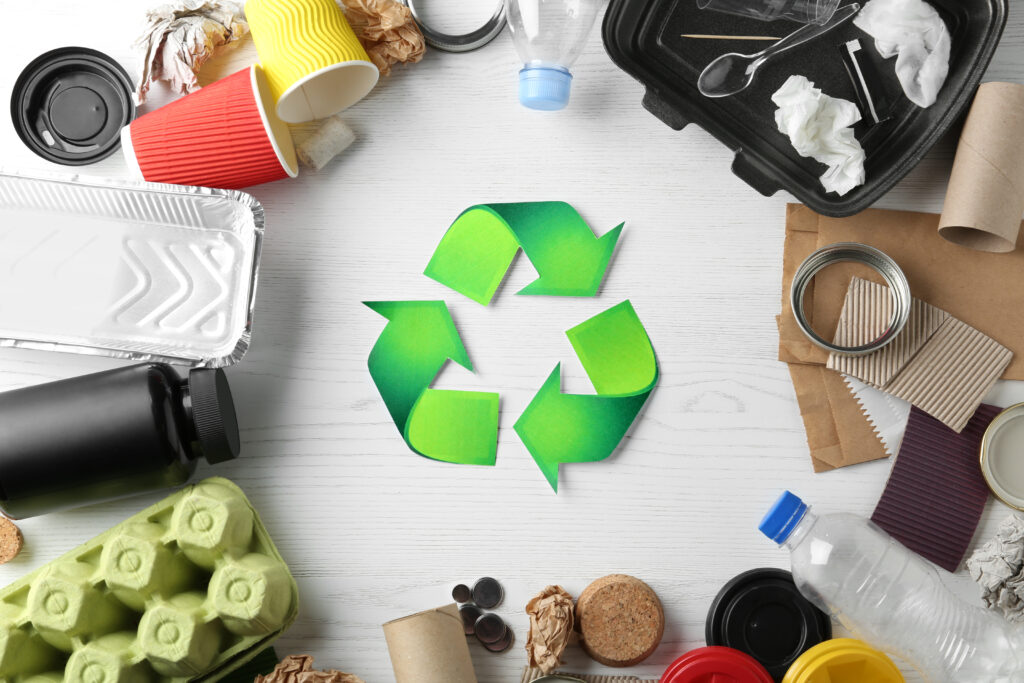NEW JERSEY RECYCLED CONTENT LAW REQUIREMENTS ARE IN EFFECT
Supporters Say This Legislation Will Be a Benchmark for Boosting Local Recycling Economy with Critics Worried about the Impact on Manufacturers

WHAT IS NEW JERSEY’S RECYCLED CONTENT LAW?
On January 18, 2022, Governor Phil Murphy signed P.L. 2021, c. 391 (N.J.S.A. 13:1E-99.135-157), requiring manufacturers to meet minimum recycled content requirements for regulated containers and packaging products sold or offered for sale in New Jersey beginning in 2024.
As per the law itself, it reads:
“New Jersey’s Recycled Content Law is intended to stimulate recycling markets by requiring manufacturers to meet minimum recycled content standards for regulated containers and packaging products sold or offered for sale in New Jersey. By requiring manufacturers to utilize postconsumer recycled content, markets for such materials are enhanced as demand shifts from virgin to recycled sources. Recycling relies heavily on supply and demand to keep the industry afloat. As oil prices decrease so do prices for virgin plastic which subsequently decrease the demand for recycled materials. Requiring manufacturers to meet minimum recycled content requirements helps to stabilize markets, increase the resiliency of the recycling industry when oil prices fluctuate, and shield municipal recycling programs from the volatility of the cost to recycle.”
–New Jersey Recycled Content Law (N.J.S.A. 13:1E-99.135-157)
Supporters of the New Jersey Recycled Content Law laud it as the most ambitious recycled content law in the Northeast, which could serve as a model for neighboring states that are also looking to boost the local recycling economy. The recycling industry had to make huge adjustments in 2018 when China stopped accepting most recycled material imports, so like many other industries falling victim to trade tensions with China, it’s looking to foster a better domestic system.
“New Jersey recyclers are not unique,” says Doug O’Malley, Director of Environment New Jersey, a supporter of the bill. “Recycling as an industry is in crisis, and we need to look at recycling close to home and create markets for it,” he adds. “No more business as usual—now it’s about increasing recycled content over the course of this decade.”
HOW WILL THIS AFFECT NJ MANUFACTURERS?
The bill could help bolster the local recycling economy as well as help shield municipalities from volatile market costs. The most immediate impact will be the manufacturing businesses’ challenge of meeting requirements as demand outpaces supply. To help alleviate some of this burden, the bill directs the state’s Department of Environmental Protection (DEP) to establish incentives for manufacturers, recyclers, and retailers to collect and reuse polyethylene film, but as of today, there have been no hard initiatives launched in support of this area of the legislation. Under the New Jersey Recycled Content Law, the DEP will also be able to review and update any of the postconsumer recycled content requirements based on factors like changing market conditions, availability of recycled material, or recycling infrastructure capacity.
WHAT MANUFACTURERS NEED TO KNOW

Rigid plastic containers will need to contain at least 10% postconsumer recycled content, and plastic beverage containers will need to contain at least 15%, with these rates required to increase incrementally over the years and cap at 50% by 2036 and 2045, respectively.
The New Jersey Recycled Content Law also establishes a 35% standard for recycled content in glass bottles; a 20% standard for plastic carryout bags; a standard of between 20% and 40% for paper carryout bags, depending on size; as well as a range of standards for plastic trash bags based on thickness. Following suit with Washington State, polystyrene packing peanuts will also be banned in 2024.
NEW POSTCONSUMER RECYCLED CONTENT (PRC) STANDARDS FOR 2024:
- RIGID PLASTIC CONTAINERS will need to contain at least 10% postconsumer recycled content
- PLASTIC BEVERAGE CONTAINERS will need to contain at least 15% postconsumer recycled content
- GLASS BOTTLES will need to contain 35% postconsumer recycled content
- PLASTIC CARRYOUT BAGS will need to contain 20% postconsumer recycled content
- PAPER CARRYOUT BAGS will need to contain between 20%-40% (depending on size) postconsumer recycled content
- POLYSTYRENE PACKING PEANUTS will be banned in 2024
IMPORTANT DATES:
- July 18, 2022: Manufacturers were required to begin registering
- January 18, 2024: Standards for all regulated containers and packaging products begins
- July 18, 2025: Manufacturers are required to submit first-year compliance reports by this date and then annually thereafter
GET HELP NAVIGATING THESE REGULATORY CHANGES
For more resources concerning the New Jersey Recycled Content Law (N.J.S.A. 13:1E-99.135-157), check out the State’s website to review the bill itself and get clarification on specific terms and definitions outlined within, or see the State’s FAQ on the New Jersey Recycled Content Law to get more answers to common questions. Porzio, Bromberg & Newman will also be hosting an information session on 1/22 to clarify the law and provide additional information on how businesses can ensure they remain compliant.
As manufacturers adjust to these changes, it’s important to remember that there are resources available through local MEPs. For manufacturers looking for more clarification or support, or for those encountering difficulties meeting the PRC requirements, NJMEP is here to assist you with navigating these new regulatory changes. In the meantime, it’s important to stay up to date and monitor the impact this new legislation will have on your operation.
